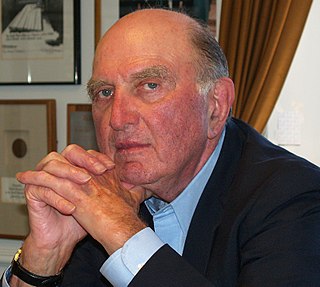A Quote by Julian Baggini
The reason Buddhism can be so naturalised is because, stripped of its supernatural elements, its core teachings can be giving a sound, secular philosophical interpretation. In other words, it becomes a religion acceptable to the contemporary, naturalistic mind only when it ceases to be a religion.
Related Quotes
Secular humanism does not have the essential attributes of a religion: belief in a deity, the wish for some sort of afterlife, sacred dogma or texts, or an absolutist moral creed. Instead, it expresses a philosophical and ethical point of view, and it draws upon the scientific method in formulationg its naturalistic view of the nature.
I'm not against religion in the sense that I feel I can't tolerate it, but I think written into the rubric of religion is the certainty of its own truth. And since there are 6,000 religions currently on the face of the earth, they can't all be right. And only the secular spirit can guarantee those freedoms and it's the secular spirit that they contest.



































